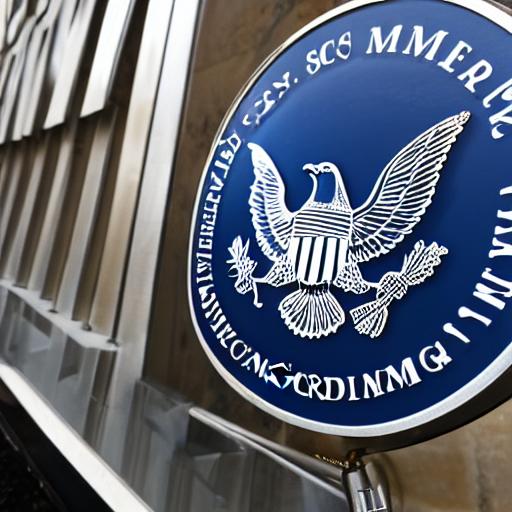The cryptocurrency companies Genesis and Gemini were accused by the Securities and Exchange Commission on Thursday of selling unregistered securities in connection with a high-yield product that was made available to depositors.
In February 2021, the cryptocurrency exchange Gemini and the cryptocurrency lender Genesis teamed up to create the Earn product on Gemini, which promised clients rewards of up to 8%.
The SEC claims that Genesis leased Gemini users‘ cryptocurrency and transferred a portion of the gains back to Gemini, which subtracted an agent charge (sometimes over 4%), and then distributed the remaining profit to its users. According to an SEC complaint lodged in Manhattan federal court, Genesis ought to have registered that product as a securities offering.
The SEC’s chairman, Gary Gensler, said in a statement that today’s charges expand on prior efforts to make clear to the market and the investing public that crypto lending platforms and other intermediaries need to confirm with its time-tested securities rules.
Both an investment contract and a note were included in Gemini’s Earn program, which was financed by Genesis’ lending activity, according to SEC officials. This complied with the SEC’s criteria. The SEC evaluates whether an offering is a security in part based on those two characteristics.
According to the SEC, the Earn program brought in billions of dollars in crypto assets for the corporations. Both Genesis and Gemini are the targets of the agency’s requests for permanent injunctive relief, disgorgement, and civil penalties. The agency added that investigations into other violations of the securities laws as well as other entities and people connected to the alleged misconduct are underway.
The $900 million in customer assets that Gemini handed to Genesis as part of the Earn program, which was shut down this week, have been the subject of a high-profile conflict between the two companies. After FTX’s bankruptcy in November sparked a run for the exits throughout the cryptocurrency community, Genesis banned withdrawals. The company has still not permitted Earn users to withdraw their money.
The SEC lawsuit stated that the U.S. retail investors who participated in the Gemini Earn program incurred significant damage. The freeze has had an impact on more than 340,000 investors.
Gemini allegedly earned around $2.7 million in agent fees from Earn in the first quarter of 2022, according to the SEC lawsuit. According to the agency, Genesis would utilize the assets of Gemini customers as “collateral for Genesis’ own borrowing” or for institutional loans.
Genesis earned $169.8 million in interest revenue during the same time period and paid out $166.2 million in interest to clients, including Gemini, according to the SEC.
Sam Bankman-Fried’s Alameda Research and Three Arrows Capital, both of which are currently insolvent, were institutional borrowers for Genesis.
Gemini, which was launched in 2015 by bitcoin supporters Cameron and Tyler Winklevoss, has a robust exchange company that, despite being under pressure, might survive legal action.
Tyler Winklevoss stated that Gemini is “working hard to recoup funds” in a tweet and referred to the SEC’s action as “absolutely unproductive.”
Genesis’ survival, however, is more in doubt because the company has already hired restructuring advisors and is largely focused on lending out consumer cryptocurrency. The crypto lender is a part of Barry Silbert’s business, DCG.
According to SEC authorities, whether to file a charge or not was unaffected by the prospect of a DCG or Genesis bankruptcy.
Following the failure of FTX, Bankman-Fried’s cryptocurrency exchange, late last year, Gensler has been leading a series of recent crypto enforcement operations. The SEC’s inability to enforce controls on the developing crypto-economy led to harsh criticism of Gensler on social media and from lawmakers.
The two regulatory bodies that control crypto activity in the US are Gensler’s SEC and the Commodity Futures Trading Commission, which is led by Rostin Benham. The SEC has recently accelerated the pace and scope of enforcement actions against Bankman-Fried despite the fact that both agencies have filed complaints against him.
Similar legal action was brought by the SEC and settled against the now-bankrupt cryptocurrency lender BlockFi last year. Earlier this month, Coinbase reached a settlement with New York state regulators about historically inadequate know-your-customer practices.
The SEC has initiated five enforcement proceedings involving cryptocurrencies after Bankman-Fried was charged with a federal fraud accusation in December.








